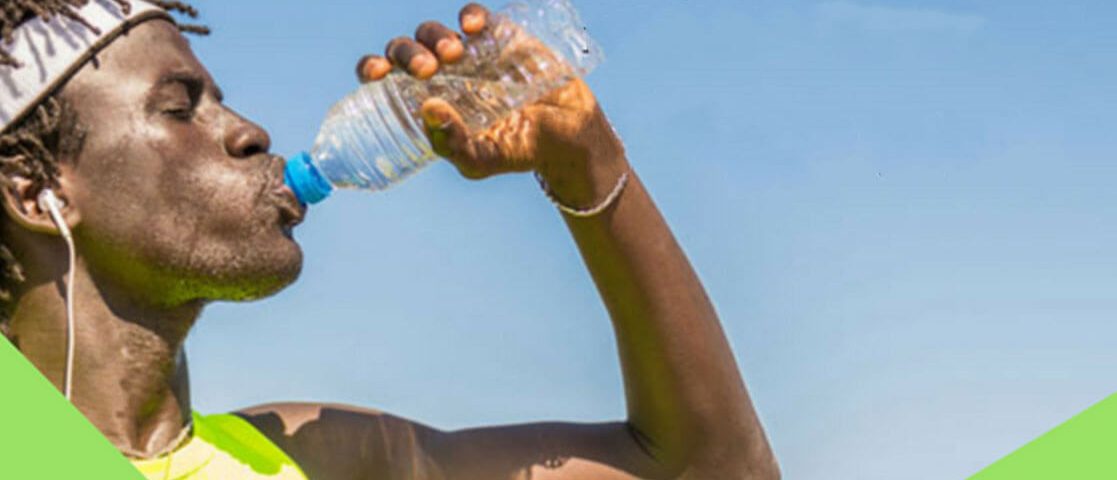
Nutrition for Runners
March 16, 2018
Marathon Taper
April 10, 2018
Hydration and Running
TIP 1– Why hydration is important?
Staying well hydrated is vital to A successful marathoner during training, and racing. Dehydration causes your blood volume to drop, which lowers your body’s ability to transfer heat and forces your heart to beat faster, negatively impacting performance. Blood and other fluids help remove waste products and bring nutrients to tissue for repair.Dehydration in athletes may lead to fatigue, headaches, decreased coordination, and muscle cramping.
TIP 2- What to drink
One can drink water, juice, sports/isotonic drinks, tea or even coffee and tea. Some studies have however shown that caffeine may cause dehydration and cancel out its performance enhancing benefits. Sports/isotonic drinks are a mixture of water, electrolytes (sodium and potassium-which starve off cramps, nausea, and hyponatremia) and easily digestible simple sugars, which provide you with the energy needed to run for long lengths of time and also help the body to absorb fluids faster. There is no need for drinks that contain electrolytes or additional calories if doing short runs under an hour.
TIP 3- How much to drink
This is dependent on a number of factors like sweat rate, which varies from person to person, weather conditions (more hydration on hot days), distance one is running amongst others. One can determine their sweat rate by checking weight before and after say an hour’s run-http://www.runnersworld.com/hydration-dehydration/how-to-determine-how-much-to-drink. On the other hand, over hydration can lead to a serious condition called hyponatremia where the body salts are overly diluted setting off an electrolyte imbalance especially in cases of excessive salt loss in a run. Sweat test rate can be done under different weather conditions to determine how the conditions affect ones sweat rate.
Tip 4- How to hydrate
Runners need to pay attention to what and how much they’re drinking before, during and after exercise.
TIP 5-Ways To Stay Hydrated While Running
- The hydration backpack-Also called camel pack. This is a bag carried on the back and it contains a water bag with a tube to drink from.
- Hydration belt – has a provision to insert one big bottle.
- Fuel belt-Has options to slot in a few small water bottles, which distributes weight around the belt.
- Handheld bottle-This bottle has a handgrip friendly shape creating a natural grip.
- Hiding bottles in strategic positions
- Ask a Friend or friends -to meet you at various spots.
- During a race–use the water and sports drink provide by the race organizers.
Pre-Run Hydration
Ensure you are well hydrated during the few days leading up to the run. You know you’re well-hydrated if you void large volumes of pale urine at least six times a day
Race day
Before race –Drink 0.25-0.5 liters one to two hours before a run another 0.125-0.25 liters an hour before race. Practice this intake during training to come up with the best intake that doesn’t give you too many bathroom stops
During the runs
Take in at least 100ml of fluid every 15 to 20 minutes during the run. Plain water is sufficient for runs of less than an hour. Practice hydration strategy well before race day
After a run
Determine amount of fluid loss by weighing before and after race. For each kilogram lost during activity, drink about 1.5 litres. of fluid. If your body weight increased, you have over hydrated and you should drink less fluid in future exercise sessions.




